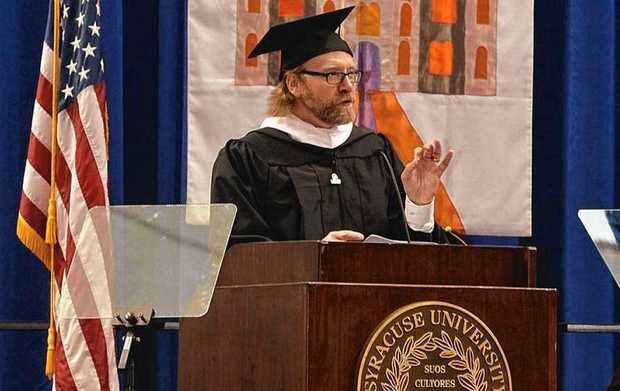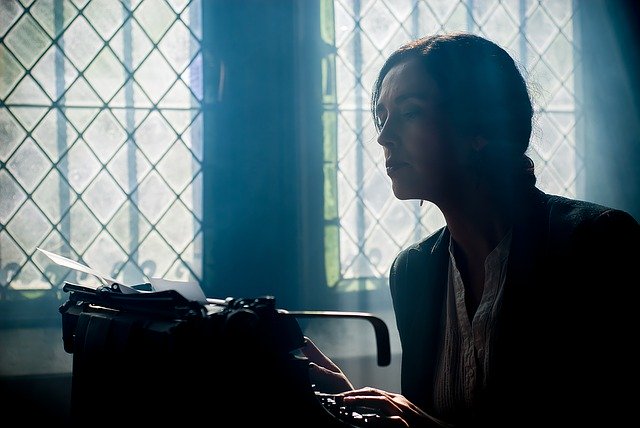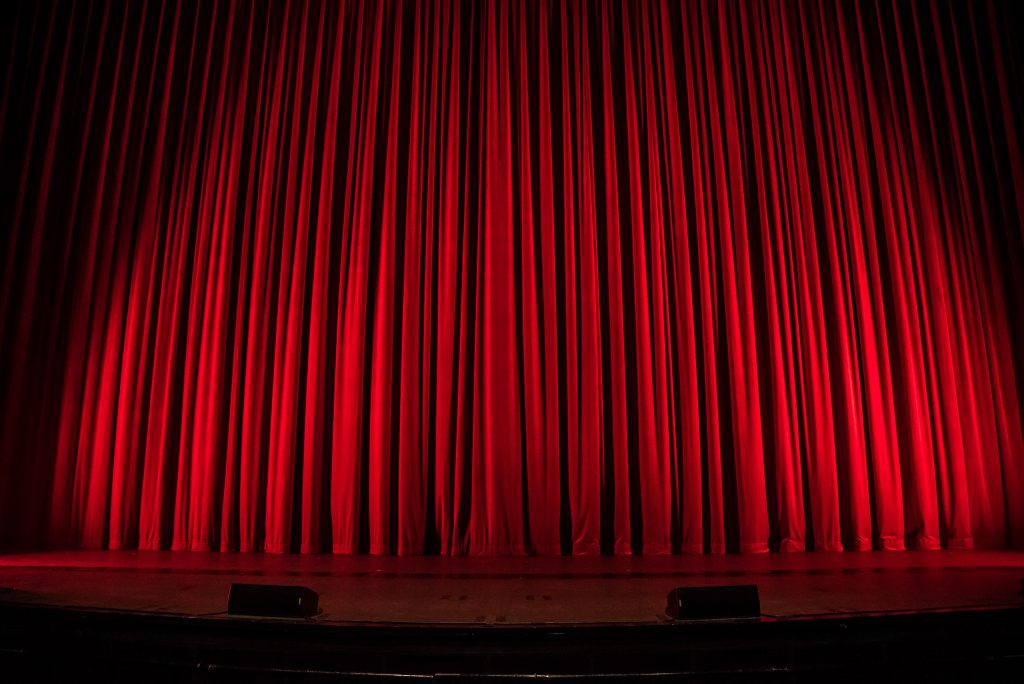5 Inspiring Commencement Speeches from Authors
(image via syracuse.com)
As George Saunders put it in his 2013 address to Syracuse, the university commencement address is a tradition in which “some old fart, his best hears behind him, who over the course of his life has made a series of dreadful mistakes, offers heartfelt advice to a group of shining, energetic, beautiful young people.”
It’s a little strange that a person, based almost entirely on their celebrity status, is somehow qualified to offer life advice to the next generation. But it comes as no surprise that authors often offer the best words of wisdom. Here, we've collected the five most inspiring commencement speeches given by authors.
George Saunders (Syracuse University, 2013)
Short story writer George Saunders searches his past for his biggest regrets and finds that they aren’t the poor years, or the embarrassing moments, or the professional failures, but the failures of kindness. He urges the graduates to “do all the other things of course, the ambitious things, but, as you do, to the extent that you can, err in the direction of kindness.”
David Foster Wallace (Kenyon College, 2005)
Essayest, novelist, and footnote-crafting genius David Foster Wallace tackles the perception that a liberal arts education isn’t so much about acquiring knowledge as about learning how to think. He clarifies that it’s not about the capacity to think so much as the choice of what to think about and that, while our default setting is deeply self-centered, we can improve our quality of life by striving to cultivate an empathetic, rather than self-righteous inner monologue. “The really important kind of freedom involves attention and awareness and discipline, and being able to truly care about pother people and to sacrifice for them over and over and over in myriad petty, little, unsexy ways every day.”
John Green (Butler University, 2013)
John Green, the poster boy for young adult literature, reconstructs the hero archetype: “We are taught that the hero’s journey is the journey from weakness to strength, but I am here today to tell you that those stories are wrong. The real hero’s journey is the journey from strength to weakness.” He offers the unsugar-coated advice that, no matter where we go after school, we’ll be back at the bottom of the totem pole and that, if we can muster the humility and patience to handle it gracefully, we’ll be better off for it. “In learning how to be a nobody, you will learn how not to be a jerk.”
J. K. Rowling (Harvard University, 2008)
JK Rowling’s rags-to-riches story is nearly as well-known as the book series that built her fortune, and she reminds Harvard graduates that, while she doesn’t wish such destitution as she reached upon anybody, some degree of failure is crucial to the fulfillment we all dream of: “Had I succeeded at anything else I might not have found the determination to succeed in the one arena in which I felt I truly belonged. I was set free, because my greatest fear had been realized.” And, when it comes to pulling yourself up, imagination is key: “We do not need magic to transform our world. We carry all the power we need inside ourselves already: we have the power to imagine better.”
Neil Gaiman (University of the Arts, 2012)
This list would not be complete without a nod to Neil Gaiman’s now-iconic “Make Good Art” address, in which he encourages the graduates of Philadelphia’s University of the Arts to embrace uncertainty and, through good times and hard, make art they’re proud of. The most inspiring moment, for me, comes early on in the speech, when Gaiman discusses the first steps in an arts career: “You have no idea what you’re doing. This is great. The people who know what they’re doing know what is possible and what is impossible. You do not, and you should not.”

Sarah Weber
A native Texan, Sarah migrated to Boston in 2013 after a stop in Chicago for an undergraduate degree from Northwestern University. Up north, though a Yankee only geographically, she received a master’s degree in publishing from Emerson College. Once she graduated, she hot-footed it back to Texas and she set up camp in Austin as a freelance editor and writer. When Sarah’s not working, she’s most often found reading a book, exploring Austin on foot, or foisting cat photos on unsuspecting friends.




